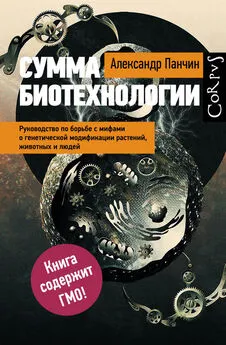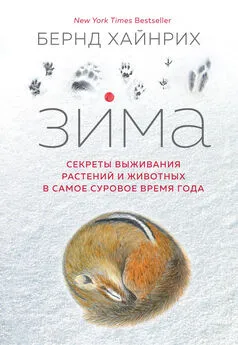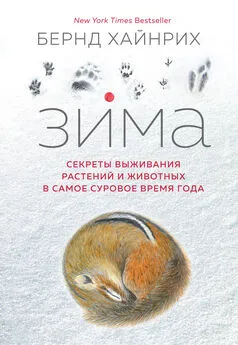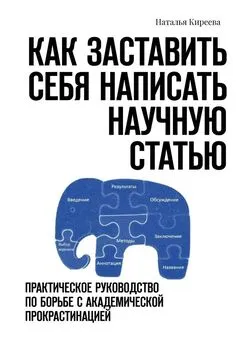Александр Панчин - Сумма биотехнологии. Руководство по борьбе с мифами о генетической модификации растений, животных и людей
- Название:Сумма биотехнологии. Руководство по борьбе с мифами о генетической модификации растений, животных и людей
- Автор:
- Жанр:
- Издательство:АСТ: CORPUS
- Год:2016
- Город:Москва
- ISBN:978-5-17-093602-1
- Рейтинг:
- Избранное:Добавить в избранное
-
Отзывы:
-
Ваша оценка:
Александр Панчин - Сумма биотехнологии. Руководство по борьбе с мифами о генетической модификации растений, животных и людей краткое содержание
Сумма биотехнологии. Руководство по борьбе с мифами о генетической модификации растений, животных и людей - читать онлайн бесплатно ознакомительный отрывок
Интервал:
Закладка:
413. Denton P.W., Garcia J.V.: Novel humanized murine models for HIV research. Curr HIV/AIDS Rep 2009, 6(1):13–9.
414. Espuny-Camacho I. et al.: Pyramidal neurons derived from human pluripotent stem cells integrate efficiently into mouse brain circuits in vivo. Neuron 2013, 77(3):440–56.
415. Strom S.C. et al.: Chimeric mice with humanized liver: tools for the study of drug metabolism, excretion, and toxicity. Methods Mol Biol 2010, 640:491–509.
416. Han X. et al.: Forebrain engraftment by human glial progenitor cells enhances synaptic plasticity and learning in adult mice. Cell Stem Cell 2013, 12(3):342–53.
417. Schwitzgebel E.: Do ethicists steal more books? Philosophical Psychology 2009, 22(6):711–25.
418. Olovnikov A.M.: Telomeres, telomerase, and aging: origin of the theory. Exp Gerontol 1996, 31(4):443–8.
419. Betts D. et al.: Reprogramming of telomerase activity and rebuilding of telomere length in cloned cattle. Proc Natl Acad Sci USA 2001, 98(3):1077–82.
420. Poss K.D. et al.: Heart regeneration in zebrafish. Science 2002, 298(5601):2188–90.
421. Engel F.B. et al.: FGF1/p38 MAP kinase inhibitor therapy induces cardiomyocyte mitosis, reduces scarring, and rescues function after myocardial infarction. Proc Natl Acad Sci USA 2006, 103(42):15546–51.
422. Bedelbaeva K. et al.: Lack of p21 expression links cell cycle control and appendage regeneration in mice. Proc Natl Acad Sci USA 2010, 107(13):5845–50.
423. Murphy S.V., Atala A.: 3D bioprinting of tissues and organs. Nat Biotechnol 2014, 32(8):773–85.
424. Ventola C.L.: Medical Applications for 3D Printing: Current and Projected Uses. P T 2014, 39(10):704–11.
425. Buffenstein R.: Negligible senescence in the longest living rodent, the naked mole-rat: insights from a successfully aging species. J Comp Physiol B 2008, 178(4):439–45.
426. Kim E.B. et al.: Genome sequencing reveals insights into physiology and longevity of the naked mole rat. Nature 2011, 479(7372):223–7.
427. Seluanov A. et al.: Hypersensitivity to contact inhibition provides a clue to cancer resistance of naked mole-rat. Proc Natl Acad Sci USA 2009, 106(46):19352–7.
428. McCay C.M. et al.: The effect of retarded growth upon the length of life span and upon the ultimate body size. 1935. Nutrition 1989, 5(3):155–71; discussion 72.
429. Szafranski K., Mekhail K.: The fine line between lifespan extension and shortening in response to caloric restriction. Nucleus 2014, 5(1):56–65.
430. Mattison J.A. et al.: Impact of caloric restriction on health and survival in rhesus monkeys from the NIA study. Nature 2012, 489(7415):318–21.
431. Carey J.R. et al.: Life history response of Mediterranean fruit flies to dietary restriction. Aging cell 2002, 1(2):140–8.
432. Kasumovic M.M. et al.: Body condition but not dietary restriction prolongs lifespan in a semelparous capital breeder. Biology letters 2009, 5(5):636–8.
433. Cooper T.M. et al.: Effect of caloric restriction on life span of the housefly, Musca domestica. FASEB journal: official publication of the Federation of American Societies for Experimental Biology 2004, 18(13):1591–3.
434. Cava E., Fontana L.: Will calorie restriction work in humans? Aging (Albany NY) 2013, 5(7):507–14.
435. Madeo F. et al.: Can autophagy promote longevity? Nature cell biology 2010, 12(9):842–6.
436. Eisenberg T. et al.: Induction of autophagy by spermidine promotes longevity. Nature cell biology 2009, 11(11):1305–14.
437. Morselli E. et al.: Caloric restriction and resveratrol promote longevity through the Sirtuin-1-dependent induction of autophagy. Cell death & disease 2010, 1:e10.
438. Hansen M. et al.: A role for autophagy in the extension of lifespan by dietary restriction in C. elegans. PLoS genetics 2008, 4(2):e24.
439. Jia K., Levine B.: Autophagy is required for dietary restriction-mediated life span extension in C. elegans. Autophagy 2007, 3(6):597–9.
440. Lum J.J. et al.: Autophagy in metazoans: cell survival in the land of plenty. Nature reviews Molecular cell biology 2005, 6(6):439–48.
441. Ravikumar B. et al.: Inhibition of mTOR induces autophagy and reduces toxicity of polyglutamine expansions in fly and mouse models of Huntington disease. Nature genetics 2004, 36(6):585–95.
442. Beauchamp E.M., Platanias L.C.: The evolution of the TOR pathway and its role in cancer. Oncogene 2013, 32(34):3923–32.
443. Saiki S. et al.: Caffeine induces apoptosis by enhancement of autophagy via PI3K/Akt/mTOR/p70S6K inhibition. Autophagy 2011, 7(2):176–87.
444. Zhou H. et al.: Updates of mTOR inhibitors. Anti-cancer agents in medicinal chemistry 2010, 10(7):571–81.
445. Dowling R.J. et al.: Metformin inhibits mammalian target of rapamycin-dependent translation initiation in breast cancer cells. Cancer Res 2007, 67(22):10804–12.
446. Chin R.M. et al.: The metabolite alpha-ketoglutarate extends lifespan by inhibiting ATP synthase and TOR. Nature 2014.
447. Leontieva O.V. et al.: Weekly administration of rapamycin improves survival and biomarkers in obese male mice on high-fat diet. Aging cell 2014.
448. Fok W.C. et al.: Mice fed rapamycin have an increase in life span associated with major changes in the liver transcriptome. PLOS ONE 2014, 9(1):e83988.
449. Miller R.A. et al.: Rapamycin-mediated lifespan increase in mice is dose and sex dependent and metabolically distinct from dietary restriction. Aging Cell 2014, 13(3):468–77.
450. Harrison D.E. et al.: Rapamycin fed late in life extends lifespan in genetically heterogeneous mice. Nature 2009, 460(7253):392–5.
451. Baur J.A. et al.: Resveratrol improves health and survival of mice on a high-calorie diet. Nature 2006, 444(7117):337–42.
452. Miller R.A. et al.: Rapamycin, but not resveratrol or simvastatin, extends life span of genetically heterogeneous mice. The journals of gerontology Series A, Biological sciences and medical sciences 2011, 66(2):191–201.
453. Elmadhun N.Y. et al.: Alcohol Consumption Mitigates Apoptosis and Mammalian Target of Rapamycin Signaling in Myocardium. Journal of the American College of Surgeons 2014.
454. Foster D.A.: Reduced mortality and moderate alcohol consumption: the phospholipase D-mTOR connection. Cell cycle 2010, 9(7):1291–4.
455. Yu X. et al.: Beneficial and harmful effects of alcohol exposure on Caenorhabditis elegans worms. Biochemical and biophysical research communications 2011, 412(4):757–62.
456. Correia S. et al.: Mechanisms of action of metformin in type 2 diabetes and associated complications: an overview. Mini Rev Med Chem 2008, 8(13):1343–54.
457. Onken B., Driscoll M.: Metformin induces a dietary restriction-like state and the oxidative stress response to extend C. elegans Healthspan via AMPK, LKB1, and SKN-1. PLOS ONE 2010, 5(1):e8758.
458. Martin-Montalvo A. et al.: Metformin improves healthspan and lifespan in mice. Nat Commun 2013, 4:2192.
459. Chin R.M. et al.: The metabolite alpha-ketoglutarate extends lifespan by inhibiting ATP synthase and TOR. Nature 2014, 510(7505):397–401.
460. Bhattacharya R. et al.: Toxicity of alpha-ketoglutarate following 14-days repeated oral administration in Wistar rats. Cellular and molecular biology 2011, 57 Suppl: OL1543–9.
461. Bhattacharya R., Vijayaraghavan R.: Promising role of alpha-ketoglutarate in protecting against the lethal effects of cyanide. Human & experimental toxicology 2002, 21(6):297–303.
462. Bhattacharya R. et al.: Biochemical, oxidative and histological changes caused by sub-acute oral exposure of some synthetic cyanogens in rats: Ameliorative effect of alpha-ketoglutarate. Food and chemical toxicology: an international journal published for the British Industrial Biological Research Association 2014, 67:201–11.
463. Hariharakrishnan J. et al.: Cyanide-induced changes in the levels of neurotransmitters in discrete brain regions of rats and their response to oral treatment with alpha-ketoglutarate. Indian journal of experimental biology 2010, 48(7):731–6.
464. Bienholz A. et al.: Adverse effects of alpha-ketoglutarate/ malate in a rat model of acute kidney injury. American journal of physiology Renal physiology 2012, 303(1):F56–63.
465. Coudray-Lucas C. et al.: Ornithine alpha-ketoglutarate improves wound healing in severe burn patients: a prospective randomized double-blind trial versus isonitrogenous controls. Critical care medicine 2000, 28(6):1772–6.
466. Donati L. et al.: Nutritional and clinical efficacy of ornithine alpha-ketoglutarate in severe burn patients. Clinical nutrition 1999, 18(5):307–11.
467. De Bandt J.P. et al.: A randomized controlled trial of the influence of the mode of enteral ornithine alpha-ketoglutarate administration in burn patients. The Journal of nutrition 1998, 128(3):563–9.
468. Campbell B. et al.: Pharmacokinetics, safety, and effects on exercise performance of L-arginine alpha-ketoglutarate in trained adult men. Nutrition 2006, 22(9):872–81.
469. Wax B. et al.: Acute L-arginine alpha ketoglutarate supplementation fails to improve muscular performance in resistance trained and untrained men. Journal of the International Society of Sports Nutrition 2012, 9(1):17.
470. Greer B.K., Jones B.T.: Acute arginine supplementation fails to improve muscle endurance or affect blood pressure responses to resistance training. Journal of strength and conditioning research / National Strength & Conditioning Association 2011, 25(7):1789–94.
471. Karsegard V.L. et al.: L-ornithine alpha-ketoglutarate in HIV infection: effects on muscle, gastrointestinal, and immune functions. Nutrition 2004, 20(6):515–20.
472. Young C. et al.: Hemorrhagic stroke in young healthy male following use of sports supplement Jack3d. Military medicine 2012, 177(12):1450–4.
473. Prosser J.M. et al.: Adverse effects associated with arginine alpha-ketoglutarate containing supplements. Human & experimental toxicology 2009, 28(5):259–62.
474. Randhawa S. et al.: Anterior segment complications of a nutritional supplement. Journal of cataract and refractive surgery 2007, 33(5):918–20.
475. Chen W. et al.: Anthocyanin-rich purple wheat prolongs the life span of Caenorhabditis elegans probably by activating the DAF-16/FOXO transcription factor. J Agric Food Chem 2013, 61(12):3047–53.
476. Leenders M. et al.: Fruit and vegetable intake and causespecific mortality in the EPIC study. Eur J Epidemiol 2014, 29(9):639–52.
477. Pierpaoli W., Regelson W.: Pineal control of aging: effect of melatonin and pineal grafting on aging mice. Proc Natl Acad Sci USA 1994, 91(2):787–91.
478. Anisimov V.N. et al.: Melatonin as antioxidant, geroprotector and anticarcinogen. Biochim Biophys Acta 2006, 1757(5–6): 573–89.
479. Bubenik G.A., Konturek S.J.: Melatonin and aging: prospects for human treatment. J Physiol Pharmacol 2011, 62(1):13–9.
480. Ayyadevara S. et al.: Remarkable longevity and stress resistance of nematode PI3K-null mutants. Aging Cell 2008, 7(1):13–22.
481. Bernardes de Jesus B. et al.: Telomerase gene therapy in adult and old mice delays aging and increases longevity without increasing cancer. EMBO Mol Med 2012, 4(8):691–704.
482. Bivalacqua T.J. et al.: Gene transfer of extracellular SOD to the penis reduces O2-* and improves erectile function in aged rats. Am J Physiol Heart Circ Physiol 2003, 284(4):H1408–21.
483. Fayad R. et al.: Oral administration with papillomavirus pseudovirus encoding IL-2 fully restores mucosal and systemic immune responses to vaccinations in aged mice. J Immunol 2004, 173(4):2692–8.
484. Mouravlev A. et al.: Somatic gene transfer of cAMP response element-binding protein attenuates memory impairment in aging rats. Proc Natl Acad Sci USA 2006, 103(12):4705–10.
Читать дальшеИнтервал:
Закладка:








